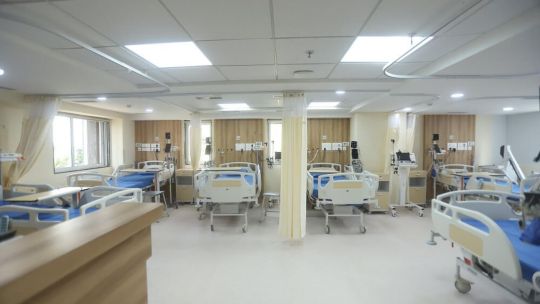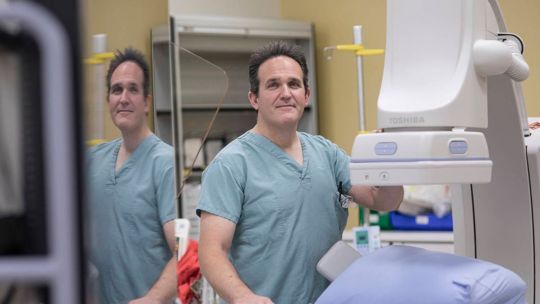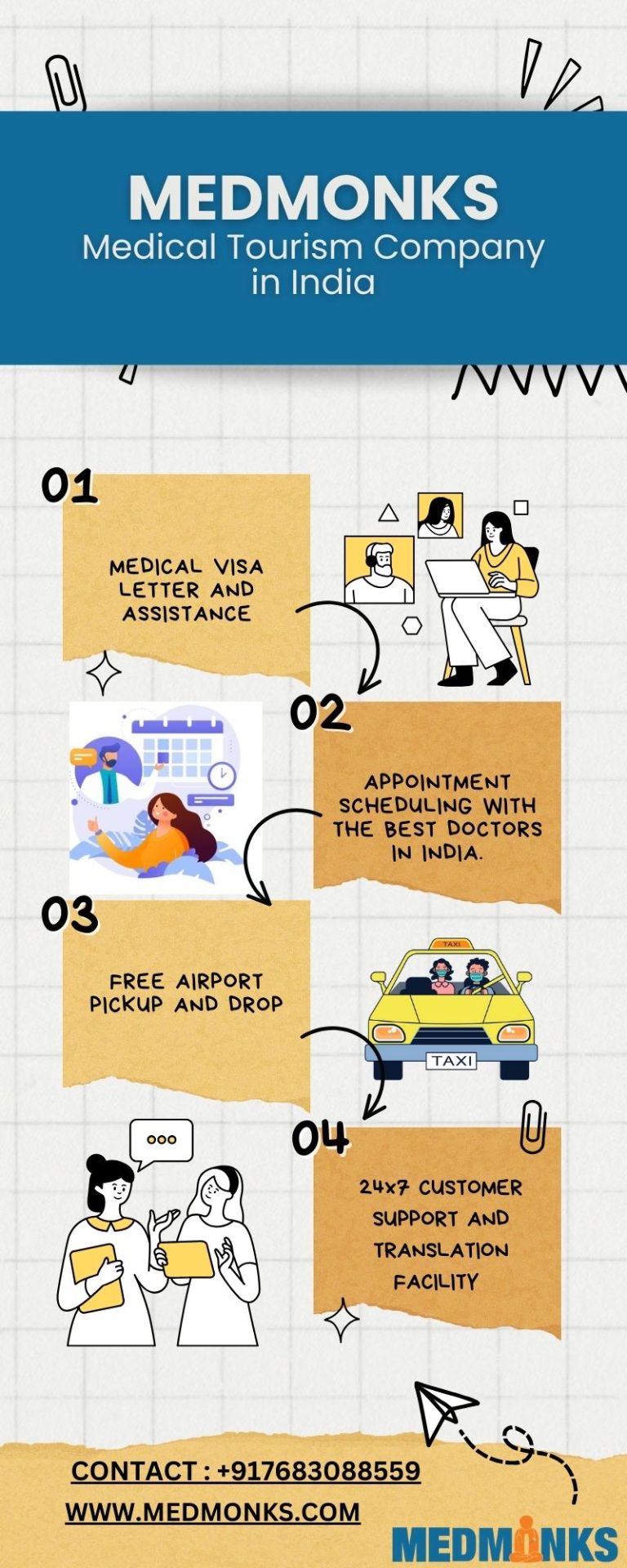#(best hospital in Jaipur)
Explore tagged Tumblr posts
Text

Experience World-Class Care at the Leading Super Multispecialty Hospital | Rungta Hospital
Discover unparalleled healthcare at the best Super Multispecialty Hospital in Jaipur, where advanced technology meets compassionate care. From critical care to cosmetic treatments, we offer a wide range of services under one roof. Our team of expert doctors and modern infrastructure ensure a patient-first experience. Whether you're seeking preventive care or specialized surgery, trust us for your health journey. Book your appointment today and take the first step toward better health with Jaipur’s most trusted medical destination.
#Super Multispecialty hospital in jaipur#best hospital in jaipur#best cardiology hospital in jaipur#best ent hospital in jaipur#best urology hospital in jaipur#best orthopedic hospital in jaipur
1 note
·
View note
Text

Experience expert care at the Best Gynaecology hospital in Jaipur, catering to each stage of a woman’s life process. The compassionate doctors help you through regular checkups and consultations that include fertility care, high-risk pregnancy management, and minimally invasive surgeries. Their support is personal, given in an environment that is modern and safe. If you are working toward building your family or having issues with hormones, opt for expert care that respects your comfort. Your well-being. Health deserves great care, and that is exactly what it shall receive.
#best hospital in jaipur#best orthopedic hospital in jaipur#orthopedichospital#bestneurologyhospitalinjaipur#best private hospital in jaipur
0 notes
Text

Advanced Cardiac Care at a Leading Heart Hospital | JRSH
Looking for expert heart care? Trust a top-rated Heart Hospital in Jaipur known for advanced treatments, skilled cardiologists, and 24/7 emergency support. From diagnosis to recovery, experience compassionate care and cutting-edge technology. Whether it's bypass surgery, angioplasty, or routine heart checkups, get treated in a hospital where your heart health is the priority. Your heart deserves nothing less than excellence.
#Heart Hospital in Jaipur#best cardiology hospital in jaipur#best urology hospital in jaipur#best hospital in jaipur#best neurology hospital in jaipur
1 note
·
View note
Text
Top Insights for Choosing the Best IVF Specialist in Jaipur
When it comes to IVF treatment, choosing the right specialist is a critical step in your fertility journey. With numerous options available, it’s essential to be well-informed and take a thoughtful approach to ensure that your treatment is successful. In this blog, we will explore the top insights that can guide you in selecting the best IVF specialist, particularly when considering IVF hospitals in Jaipur.

1. Understand the Importance of Expertise
One of the most important factors in choosing the right IVF specialist is their expertise. An experienced IVF doctor will have handled various fertility cases and will be able to tailor a treatment plan to your specific needs. This expertise ensures that they are capable of navigating any complications that may arise during the process. Look for an IVF hospital in Jaipur that is known for its expert specialists who have a strong track record of successful IVF treatments.
While choosing an IVF hospital, pay attention to the qualifications of the doctors. Leading IVF hospitals in Jaipur will often have highly trained and experienced professionals who specialize in assisted reproductive technologies. A hospital like Aastha Fertility, renowned for its expert doctors, is a great example of an IVF center that offers high-quality treatments.
2. Success Rates of IVF Treatment
The success rate of an IVF hospital is an important consideration for couples seeking fertility treatment. These success rates can give you an idea of how well a clinic performs and its overall success in helping patients achieve their dream of parenthood.
When researching IVF hospitals in Jaipur, ask about their success rates for different age groups, types of infertility, and treatment methods. A clinic with higher success rates indicates that the IVF specialists at the hospital are well-versed in the most effective treatment methods. Additionally, a reputable IVF hospital like Aastha Fertility is often known for its higher success rates, making it a preferred choice for many couples.
3. Personalized Treatment Plans
Every fertility journey is unique, and so are the challenges faced by each couple. The best IVF specialists understand this and offer personalized treatment plans that consider your specific health condition, fertility issues, and preferences. This individualized approach ensures a more targeted and effective treatment.
Look for IVF hospitals in Jaipur that offer a comprehensive consultation before beginning the treatment process. This consultation should involve a thorough medical history review, diagnostic testing, and a discussion of the treatment options available. At a reputable IVF hospital like Aastha Fertility, specialists work closely with patients to design a treatment plan that is best suited to their needs.
4. Cutting-edge Technology and Techniques
The IVF process has evolved significantly over the years, and modern technology has made IVF treatment more successful and less invasive. When selecting an IVF hospital in Jaipur, ensure that the facility is equipped with the latest IVF technologies, such as advanced imaging, embryo freezing, genetic testing, and more. These technological advancements can play a key role in improving success rates and minimizing complications.
A clinic like Aastha Fertility stands out due to its use of the latest technologies and treatment techniques. By opting for an IVF hospital that embraces innovation, you increase your chances of a successful outcome.
5. Patient-Centric Care
An important factor to consider is the level of patient-centric care offered by the IVF hospital. The IVF journey can be emotionally and physically challenging, so it is essential to choose a clinic that provides a supportive and compassionate environment. IVF specialists who prioritize patient well-being will offer constant guidance, be available to address any concerns, and make sure that you feel informed and supported at every stage of the process.
Choosing an IVF hospital in Jaipur with a reputation for excellent patient care is crucial. Hospitals like Aastha Fertility are known not only for their medical expertise but also for creating a comfortable, supportive atmosphere for their patients. The staff should be empathetic and understanding, helping you through each step with personalized attention.
6. Transparency in Pricing
Cost is an important consideration for many couples seeking IVF treatment. It's essential to choose an IVF hospital in Jaipur that is transparent about its pricing. Some hospitals may have hidden fees, while others offer clear breakdowns of their costs, ensuring you understand the expenses involved from the beginning.
Reputable IVF centers, like Aastha Fertility, offer clear and transparent pricing structures. This allows you to make an informed decision without any financial surprises along the way. Be sure to ask about any additional costs for medications, diagnostic tests, and post-treatment follow-ups.
7. State-of-the-Art Infrastructure
The infrastructure of the IVF hospital plays a crucial role in the quality of care you receive. A modern IVF hospital should be equipped with state-of-the-art medical facilities, including well-maintained laboratories, operating rooms, and comfortable patient areas. The overall environment of the clinic should make you feel relaxed and confident in your decision.
When searching for an IVF hospital in Jaipur, look for a facility with the best infrastructure. Hospitals like Aastha Fertility are known for offering cutting-edge facilities, which contribute to a higher success rate and better overall experience for patients.
8. Reputation and Reviews
Word of mouth and patient testimonials can be valuable tools in selecting the right IVF hospital. Online reviews, social media feedback, and personal recommendations can give you insights into the quality of treatment and patient experiences. A hospital with a good reputation is more likely to have satisfied patients, which is a sign of trustworthiness and expertise.
When exploring IVF hospitals in Jaipur, take time to check the reviews and testimonials of past patients. Aastha Fertility, for example, has received numerous positive reviews for its high-quality treatment and excellent patient care, further solidifying its reputation as one of the leading IVF centers.
9. Counseling and Emotional Support
Fertility treatment can be emotionally taxing, and finding an IVF hospital that offers counseling and emotional support is key. Many IVF hospitals in Jaipur now offer counseling services to help patients deal with the emotional challenges that can come with fertility treatments.
IVF centers like Aastha Fertility recognize the importance of emotional well-being during the treatment process and provide counseling services to support patients. This ensures that patients feel confident and empowered throughout their IVF journey.
10. Follow-up Care and Support
After IVF treatment, it’s important to have consistent follow-up care. Look for an IVF hospital in Jaipur that offers thorough post-treatment care, including regular check-ups, guidance on lifestyle changes, and assistance with any complications that may arise. This ongoing support can make a huge difference in the success of your treatment.
Aastha Fertility excels in providing excellent follow-up care to its patients, ensuring they receive the guidance and support they need for a successful pregnancy.
Conclusion
Choosing the right IVF hospital in Jaipur is a critical decision that will impact your fertility journey. By considering the insights outlined in this blog, such as expertise, success rates, personalized care, and the use of advanced technology, you can make an informed choice. Hospitals like Aastha Fertility offer exceptional services that make the IVF process more accessible and successful. Remember, the key to a successful IVF experience is not only selecting the right specialist but also choosing a hospital that provides comprehensive, compassionate care every step of the way.
0 notes
Text
Colon Cancer Treatment in India: Understanding Symptoms, Diagnosis, and Costs

Colon cancer is one of the most common cancers in India, so early detection and effective treatment to improve survival. Symptoms to watch include bowel changes, abdominal cramps, rectal bleeding, unexplained weight loss, and persistent fatigue. If you notice these symptoms, it is important to consult a healthcare professional as soon as possible.
The diagnosis of Colon cancer typically involves review of medical history, physical examination, and imaging tests such as colonoscopy, biopsy, and CT scan. These steps are critical for determining the location and extent of cancer, and for health care providers to develop effective treatment plans.
In terms of cost, for Colon cancer treatment in India can range from Rs 100,000 to Rs 800,000 depending on the stage of cancer and the type of treatment This includes surgery, chemotherapy, radiation therapy disease and follow-up treatment. Compared to many western countries, India offers affordable treatment without compromising on quality.
For those looking for quality care, some of the outstanding colon cancer hospitals include BLK-Max Super Specialty Hospital in Delhi and Medanta - The Medicity, as well as Apex Hospital in Jaipur and CK Birla Hospital You know these centers as having advanced cancer departments and skilled medical teams They ensure excellent care.
For more information on colorectal cancer treatment and clinical options, visit JD Max, a patient registry website that connects patients with leading healthcare providers in India. Early intervention can have a significant impact on treatment outcomes, making awareness and early action important.
#kidney transplant cost in india#best cardiac treatment in india#Colon Cancer Treatment in India#best hospital in india#best hospital in jaipur#best cancer treatment hospital#cancer treatment hospital
0 notes
Text
Discover the Best Hospital in Jaipur for Your Health Needs

Jaipur, the vibrant capital of Rajasthan, boasts not only rich culture and stunning architecture but also a thriving medical infrastructure. Whether you're seeking treatment for a critical illness like cancer or require specialized care for orthopedic or heart problems, Jaipur offers a range of cancer hospitals in Jaipur, orthopedic hospitals in Jaipur, and top-notch cardiac facilities. This blog aims to guide you through these specialized services and help you find the best hospital in Jaipur for your specific needs.
Cancer Care in Jaipur
Cancer diagnosis can be overwhelming, and timely access to quality treatment is crucial. Cancer hospital in Jaipur are well-equipped with cutting-edge technology and experienced oncologists. These facilities offer a comprehensive range of services, including:
Surgical Oncology: This involves surgical removal of cancerous tumors.
Medical Oncology: This specialty utilizes medications like chemotherapy and targeted therapies to combat cancer.
Radiation Oncology: This treatment employs high-energy radiation to destroy cancer cells.

Choosing a Cancer Hospital in Jaipur:
Look for a facility with a dedicated team of oncologists specializing in various cancer types. The hospital should have advanced diagnostic capabilities like PET scans and CT scans to accurately assess the stage and spread of cancer. Additionally, consider the availability of support services, including counseling, rehabilitation, and palliative care.
Orthopedic Care in Jaipur
For issues related to the musculoskeletal system – bones, joints, muscles, and ligaments – Jaipur offers specialized orthopedic hospitals in Jaipur. These facilities boast teams of skilled orthopedic surgeons and access to advanced diagnostics like X-rays, MRIs, and arthroscopies. Orthopedic hospitals in Jaipur provide treatment for various conditions, including:
Joint Replacement Surgery: This procedure replaces damaged joints like hips and knees with artificial implants.
Sports Injuries Treatment: Specialized rehabilitation and surgical intervention for athletes.
Fracture Management: Setting broken bones and promoting proper healing through casts, braces, or surgery.
Choosing an Orthopedic Hospital in Jaipur:

When selecting an orthopedic hospital in Jaipur, consider the surgeon's expertise in your specific condition. Research the hospital's track record with complex surgeries and minimally invasive techniques. Additionally, inquire about the availability of rehabilitation services to ensure a smooth recovery.
Heart Care in Jaipur:
Cardiovascular health is paramount, and Jaipur thrives in this domain as well. Top heart hospitals in Jaipur employ highly qualified cardiologists and utilize advanced technology for diagnosis and treatment. These facilities offer a comprehensive range of services, including:
Coronary Artery Bypass Grafting (CABG): This surgery bypasses blocked arteries in the heart.
Percutaneous Coronary Intervention (PCI): This procedure uses a catheter to open blocked arteries.
Electrocardiogram (ECG): This test records the electrical activity of the heart.
Echocardiogram: This uses sound waves to create images of the heart to assess its function.
Choosing a Heart Hospital in Jaipur:

Selecting a heart hospital in jaipur demands careful consideration. Look for a facility with experienced cardiologists specializing in your specific heart condition. The hospital should have a well-equipped Cath Lab for advanced interventional procedures. Additionally, inquire about the availability of cardiac rehabilitation programs to aid recovery and improve future heart health.
Jaipur offers a plethora of options when it comes to healthcare, especially for critical areas like cancer, orthopedics, and heart care. By understanding the specialized services offered by cancer hospitals in Jaipur, orthopedic hospitals in Jaipur, and heart hospitals in Jaipur, you can make an informed choice to receive the best possible care. Remember, early diagnosis and access to quality treatment are key to successful recovery. This blog aims to empower you with information to navigate the healthcare landscape in Jaipur and prioritize your well-being.
#cancer hospital in Jaipur#orthopedic hospitals in Jaipur#best hospital in Jaipur#heart hospital in Jaipur
0 notes
Text
What Causes Heart Failure: Understanding the Risk Factors

Heart failure is a serious medical condition where the heart cannot pump blood efficiently to meet the body's needs. Understanding the risk factors that lead to heart failure is crucial in preventing and managing this condition. In Jaipur, the Tagore Hospital, known as the Best Cardiology Hospital in Jaipur, provides exceptional care and advanced treatment options for heart failure patients.
What is Heart Failure?
Heart failure does not mean that the heart has stopped working completely, but rather that it is not functioning as effectively as it should. This inefficiency results in inadequate blood flow to the organs and tissues, leading to a range of symptoms including fatigue, shortness of breath, and fluid retention.
Key Risk Factors for Heart Failure
Coronary Artery Disease (CAD): CAD is the most common cause of heart failure. It occurs when the arteries supplying blood to the heart muscle become narrowed or blocked, reducing blood flow and oxygen to the heart.
High Blood Pressure (Hypertension): Persistent high blood pressure forces the heart to work harder to pump blood, eventually weakening the heart muscle and leading to heart failure.
Diabetes: Diabetes increases the risk of developing heart disease and heart failure. High blood sugar levels can damage the heart and blood vessels over time.
Heart Attack (Myocardial Infarction): A heart attack can cause damage to the heart muscle, leading to areas of dead or scarred tissue that impair the heart's ability to pump effectively.
Valvular Heart Disease: Problems with the heart valves, such as stenosis (narrowing) or regurgitation (leaking), can strain the heart and lead to heart failure.
Cardiomyopathy: This condition involves changes to the heart muscle itself, whether due to genetic factors, infections, alcohol abuse, or other causes, making it harder for the heart to pump blood.
Congenital Heart Defects: Some people are born with structural heart problems that can lead to heart failure later in life if not properly managed.
Lifestyle Factors: Unhealthy lifestyle choices, such as smoking, excessive alcohol consumption, poor diet, and lack of physical activity, can significantly increase the risk of heart failure.
Obesity: Being overweight puts extra strain on the heart, increasing the risk of developing conditions like hypertension and diabetes, which are risk factors for heart failure.
Sleep Apnea: This sleep disorder, characterized by repeated interruptions in breathing, can cause high blood pressure and heart strain, contributing to heart failure.
Prevention and Management
Preventing heart failure involves addressing the risk factors through lifestyle changes and medical interventions. Here are some key strategies:
Healthy Diet: A balanced diet rich in fruits, vegetables, whole grains, and lean proteins can help manage weight, blood pressure, and cholesterol levels.
Regular Exercise: Physical activity strengthens the heart and improves overall cardiovascular health.
Quit Smoking: Smoking cessation is crucial for reducing the risk of heart disease and heart failure.
Control Blood Pressure and Diabetes: Regular monitoring and management of blood pressure and blood sugar levels are essential.
Limit Alcohol: Moderation in alcohol consumption can prevent heart damage.
Regular Check-ups: Routine visits to a cardiologist, especially at a reputed facility like Tagore Hospital, can help detect and manage risk factors early.
Tagore Hospital: Leading the Way in Cardiology Care
Tagore Hospital, recognized as the Best Cardiology Hospital in Jaipur, offers comprehensive care for heart failure patients. With a team of experienced cardiologists, state-of-the-art facilities, and a patient-centric approach, Tagore Hospital provides advanced diagnostic and treatment options, including:
Advanced Imaging: Cutting-edge imaging technologies for accurate diagnosis and monitoring.
Personalized Treatment Plans: Customized care plans tailored to each patient's specific needs.
Rehabilitation Programs: Cardiac rehabilitation to improve recovery and quality of life.
Patient Education: Programs to educate patients and their families about heart failure management and prevention.
Conclusion
Understanding the risk factors for heart failure is the first step towards prevention and effective management. By adopting a healthy lifestyle and seeking expert care from renowned institutions like Tagore Hospital, individuals can significantly reduce their risk and lead healthier lives. If you or a loved one are concerned about heart health, consider consulting with the specialists at Tagore Hospital, the Best Cardiology Hospital in Jaipur and recognized as the Best Hospital in Jaipur, for comprehensive and compassionate care.
0 notes
Text
What Are the Benefits of Arthroscopy for Joint Problems?

Joint problems can significantly impact your quality of life, causing pain and limiting mobility. Traditional surgical methods can be invasive and require long recovery periods. However, advances in medical technology have introduced less invasive procedures like arthroscopy, offering numerous benefits for patients with joint issues. If you’re seeking top-notch orthopaedic care, the best orthopaedic hospital in Jaipur, Khandaka Hospital, is at the forefront of providing arthroscopic treatment. Let's explore the benefits of arthroscopy for joint problems and why Khandaka Hospital is your best choice for this procedure.
Understanding Arthroscopy
Arthroscopy is a minimally invasive surgical procedure used to diagnose and treat joint problems. During the procedure, a small camera called an arthroscope is inserted into the joint through a tiny incision. This camera provides a clear view of the inside of the joint, allowing the surgeon to accurately diagnose the issue and perform necessary treatments.
Benefits of Arthroscopy
1. Minimally Invasive
One of the primary benefits of arthroscopy is that it is minimally invasive. Unlike traditional open surgery, which requires large incisions, arthroscopy involves only small cuts. This significantly reduces the trauma to the surrounding tissues, leading to less pain and faster recovery.
2. Reduced Recovery Time
Thanks to its minimally invasive nature, arthroscopy often results in shorter hospital stays and quicker recovery times. Patients can return to their normal activities much sooner compared to traditional surgical methods. This is particularly beneficial for athletes and active individuals who need to get back to their routines quickly.
3. Less Postoperative Pain
Patients who undergo arthroscopy typically experience less postoperative pain compared to those who have open surgery. Smaller incisions mean less damage to the surrounding tissues, which translates to reduced pain and discomfort during the recovery period.
4. Lower Risk of Infection
The smaller incisions used in arthroscopy also reduce the risk of infection. With fewer and smaller wounds, the chances of bacteria entering the body and causing an infection are minimized, making arthroscopy a safer option for many patients.
5. Accurate Diagnosis and Treatment
Arthroscopy allows for a highly accurate diagnosis of joint problems. The arthroscope provides a clear and magnified view of the joint's interior, enabling the surgeon to identify issues that may not be visible through other imaging methods. This precise visualization allows for targeted treatments and better outcomes.
6. Versatility in Treating Various Joint Issues
Arthroscopy is not limited to diagnosing joint problems; it is also used to treat a wide range of issues. Conditions such as torn cartilage, ligament injuries, and joint inflammation can be effectively managed through arthroscopic procedures. This versatility makes arthroscopy a valuable tool in orthopaedic care.
Why Choose Khandaka Hospital for Arthroscopy?
Expertise and Experience
Khandaka Hospital, the best orthopaedic hospital in Jaipur, boasts a team of highly skilled and experienced orthopaedic surgeons. Their expertise in performing arthroscopic procedures ensures that patients receive the best possible care and outcomes.
State-of-the-Art Facilities
Khandaka Hospital is equipped with state-of-the-art facilities and the latest medical technology. Their advanced arthroscopy equipment and surgical techniques ensure that patients benefit from the most up-to-date and effective treatments available.
Comprehensive Care
From diagnosis to post-operative care, Khandaka Hospital provides comprehensive orthopaedic services. Their multidisciplinary approach ensures that each patient receives personalized care tailored to their specific needs, promoting faster recovery and better results.
Patient-Centered Approach
At Khandaka Hospital, patient satisfaction and well-being are the top priorities. The hospital's compassionate and dedicated staff ensure that patients are well-informed and comfortable throughout their treatment journey.
Conclusion
Arthroscopy offers numerous benefits for patients with joint problems, including minimal invasiveness, reduced recovery time, and accurate diagnosis and treatment. For those seeking the best orthopaedic care, Khandaka Hospital in Jaipur stands out as the top choice. Recognized as the best hospital in Jaipur, Khandaka Hospital provides exceptional care and successful outcomes for those undergoing arthroscopic procedures with their expertise, advanced facilities, and patient-centered approach. If you're experiencing joint issues, consider arthroscopy at Khandaka Hospital to restore your mobility and improve your quality of life.
0 notes
Text

#healthcare#health#hospital#india#medicaltourism#doctors#important#medicine#healthandwellness#health & fitness#mental health#health and wellness#besthospitaldelhi#best hospital in bangalore#best hospital in hyderabad#best hospital in jaipur#best hospital in chennai#best hospital indore#cancer#kidneyhealth#kidney transplant#kidney stone specialist#kidney disease#heartache
0 notes
Text

Laparoscopic Surgery Hospital | Rungta Hospital
Looking for the best Laparoscopic Surgery Hospital in Jaipur? Our hospital offers advanced, minimally invasive laparoscopic procedures with expert surgeons and world-class facilities. We prioritize patient safety, faster recovery, and precision care. With a team of experienced specialists and cutting-edge technology, we ensure a smooth surgical experience and excellent results. Book your consultation today and take the first step toward a healthier life. Trust us for high-quality laparoscopic treatment in Jaipur.
#Laparoscopic Surgery Hospital in Jaipur#best hospital in jaipur#super multispeciality hospital in jaipur
1 note
·
View note
Text

Striving towards more women's well-being in all aspects of life, the best gynaecology hospital in Jaipur is a center for high-quality expert care, cutting-edge treatments, and supportive care concerning various gynecological concerns-for everything between the boundaries of routine check-ups to prenatal care, advanced surgeries, and menopause management. The hospital has critically integrated advanced technology and personalized attention to provide the best quality of care. By assembling a group of experienced gynecologists with modern facilities and a patient-centric approach, this hospital has become a reliable destination for complete women's healthcare in Jaipur.
#best hospital in jaipur#best orthopedic hospital in jaipur#bestneurologyhospitalinjaipur#best private hospital in jaipur#orthopedichospital#gynecologist
0 notes
Text

Comprehensive Women’s Care at a Leading Obstetrics Hospital
Looking for expert care during pregnancy and childbirth? Choose a trusted obstetrics hospital in Jaipur that offers compassionate support, advanced maternity services, and experienced gynecologists. From prenatal checkups to safe deliveries, every stage is handled with care and precision. Modern facilities and 24/7 emergency care ensure both mother and baby are in the best hands. Begin your motherhood journey with confidence and comfort at Jaipur’s top women’s health center.
#best hospital in jaipur#child hospital in jaipur#best neurology hospital in jaipur#best cardiology hospital in jaipur#Obstetrics hospital in Jaipur
1 note
·
View note
Text
The Ultimate Guide to Urology in Jaipur: Top Hospitals and Treatment Options
Urology, a branch of medicine focusing on the urinary tract and male reproductive organs, is essential for diagnosing and treating conditions like kidney stones, urinary infections, and prostate issues. Jaipur, the Pink City, boasts several top-tier hospitals equipped with advanced technology and skilled urologists. This guide will walk you through the best hospitals in Jaipur for urology in jaipur and provide insights into the treatment options available.

Top Hospitals for Urology in Jaipur
1. Sawai Man Singh (SMS) Hospital
SMS Hospital, a government-run institution, is one of the largest and most reputed hospitals in Jaipur. With a dedicated urology department, it offers a wide range of services including laparoscopic surgeries, treatment for kidney stones, and prostate care. The hospital is known for its experienced medical staff and affordable treatment options.
2. Fortis Escorts Hospital
Fortis Escorts is a renowned private hospital in Jaipur, recognized for its state-of-the-art facilities and expert urologists. The hospital provides comprehensive urology care, from minimally invasive surgeries to advanced treatments for complex urological conditions. It is well-regarded for its patient-centric approach and high success rates.
3. Apex Hospital
Apex Hospital is another prominent healthcare institution urology in Jaipur with a dedicated urology department. The hospital offers treatments like endoscopic surgery, laser lithotripsy, and management of urinary tract infections. Apex is known for its modern infrastructure and commitment to patient care.
4. Mahatma Gandhi Medical College and Hospital
This medical college and hospital offer excellent urology services, combining education and treatment under one roof. The urology department here is equipped with the latest technology and provides treatments such as renal transplant, urethral reconstruction, and pediatric urology. The institution prides itself on its research and clinical expertise.
Treatment Options in Urology
Kidney Stone Management
Kidney stones are a common urological issue that can cause severe pain and discomfort. In Jaipur, hospitals use advanced techniques like Extracorporeal Shock Wave Lithotripsy (ESWL), ureteroscopy, and percutaneous nephrolithotomy (PCNL) to effectively treat kidney stones.
Prostate Treatments
Prostate health is crucial for men, especially as they age. Treatments for prostate issues in Jaipur include medications, minimally invasive procedures like Transurethral Resection of the Prostate (TURP), and laser surgeries. These treatments help manage conditions like benign prostatic hyperplasia (BPH) and prostate cancer.
Urinary Incontinence
Urinary incontinence, or the loss of bladder control, affects both men and women. Hospitals in Jaipur offer various treatments including pelvic floor exercises, medications, and surgical options like sling procedures and artificial urinary sphincters to help patients regain control and improve their quality of life.
Pediatric Urology
Pediatric urology deals with urological issues in children, such as congenital abnormalities and urinary tract infections. Jaipur’s hospitals have specialized pediatric urologists who provide tailored treatments like reconstructive surgery and minimally invasive procedures to address these conditions with utmost care.

Jaipur is home to some of the best hospitals in India for urological treatments. From government institutions like SMS Hospital to private facilities like apex hospital, the city offers a wide range of best hospitals options to cater to different needs and budgets. With advanced technology and skilled urologists, patients can expect high-quality care and successful outcomes. Whether you are dealing with kidney stones, prostate issues, or pediatric urology concerns, Jaipur has the expertise and facilities to provide comprehensive urological care.
0 notes
Text
Welcome to Hcura Homeopathy, Your Trusted Homeopathy Clinic in Bangalore
At Hcura Homeopathy, we are dedicated to providing holistic and effective homeopathic treatments for a wide range of health conditions. Located in the heart of Bangalore, our clinic offers a tranquil and welcoming environment where patients can receive personalized care tailored to their individual needs.
Why Choose Us?
Experienced Practitioners: Our team of highly qualified and experienced homeopathic doctors is committed to delivering the best possible care. With years of expertise in homeopathy, they ensure that each patient receives a comprehensive evaluation and a customized treatment plan.
Holistic Approach: We believe in treating the root cause of health issues rather than just the symptoms. Our holistic approach aims to restore balance and harmony within the body, promoting overall well-being and long-term health.
Safe and Natural Remedies: Homeopathy is known for its gentle and natural remedies. Our treatments are safe for all ages and free from harmful side effects, making them suitable for children, adults, and the elderly.
Comprehensive Care: Whether you are dealing with chronic conditions, acute illnesses, or looking for preventive care, we offer a wide range of homeopathic treatments to address various health concerns, including allergies, skin conditions, respiratory issues, digestive disorders, and more.
Patient-Centered Service: At Hcura Homeopathy, we prioritize our patients' comfort and satisfaction. Our friendly staff and serene clinic atmosphere ensure that every visit is a positive and healing experience.
Our Services Include:
Detailed Consultations
Individualized Treatment Plans
Follow-Up Care
Lifestyle and Dietary Advice
Visit Us Today
Experience the benefits of homeopathy at Hcura Homeopathy. We are conveniently located in Jayanagar, Bangalore. To schedule an appointment or learn more about our services, please contact us at +91 88700 01377 or [email protected] or visit our website at [https://h-cura.com/].
Take the first step towards better health and well-being with Hcura Homeopathy – your partner in holistic healing.
0 notes
Text
Paramount Child Development Center Jaipur
Looking for the best child development center in Jaipur? Look no further than Paramount Child Development Center. Our expert staff, cutting-edge programs, and nurturing environment will help your child reach their full potential. Join us today and give your child the best start in life
1 note
·
View note
Text
What Are the Symptoms of Nose Blockages?

Nose blockages, also known as nasal congestion, can be a common but frustrating condition. They occur when the nasal passages are swollen or obstructed, leading to difficulty in breathing. Understanding the symptoms of nose blockages can help you identify the condition early and seek appropriate treatment. If you’re experiencing persistent nose blockages and are in Jaipur, consider visiting Tagore Hospital, known as the best ENT hospital in Jaipur, for expert care and treatment.
Common Symptoms of Nose Blockages
1. Difficulty Breathing Through the Nose
One of the most obvious symptoms of a nose blockage is difficulty breathing through the nose. You may find yourself breathing through your mouth more often, especially during activities like exercising or sleeping.
2. Nasal Discharge
Another common symptom is nasal discharge, which can vary in consistency and color. Clear discharge is often associated with allergies or viral infections, while thicker, colored mucus may indicate a bacterial infection.
3. Facial Pain and Pressure
Swelling and congestion in the nasal passages can lead to a sensation of pressure or pain in the face, particularly around the forehead, eyes, and cheeks. This is often a symptom of sinusitis, where the sinuses become inflamed and blocked.
4. Reduced Sense of Smell and Taste
Nasal blockages can impair your sense of smell and taste. This occurs because the airflow necessary to carry odors to the smell receptors in the nose is obstructed.
5. Postnasal Drip
When excess mucus drips down the back of the throat, it is referred to as postnasal drip. This can cause a persistent cough, sore throat, or a tickling sensation in the throat.
6. Headache
Nasal congestion can sometimes lead to headaches, particularly if it is accompanied by sinusitis. The pressure buildup in the sinuses can cause pain that is often felt around the forehead and eyes.
7. Snoring
Blocked nasal passages can lead to snoring, as the airflow through the nose is restricted, causing vibrations in the throat. This can also disrupt sleep and lead to daytime fatigue.
8. Bad Breath
Chronic nasal congestion and postnasal drip can contribute to bad breath. The mucus and bacteria present can create an unpleasant odor.
9. Fatigue
Constantly struggling to breathe through a blocked nose can lead to fatigue and decreased energy levels. Poor sleep quality due to nasal congestion can also contribute to this feeling of tiredness.
When to Seek Medical Attention
While occasional nasal congestion is common and often resolves on its own, persistent or severe symptoms may indicate a more serious condition that requires medical attention. If you experience any of the following, it’s time to consult a healthcare professional:
Symptoms Lasting More Than 10 Days: Persistent congestion could be a sign of a chronic condition, such as sinusitis or nasal polyps.
Severe Facial Pain: Intense pain or swelling in the face may indicate a sinus infection that requires treatment.
High Fever: A high fever along with nasal congestion could be a sign of a bacterial infection.
Blood in Nasal Discharge: This could indicate a more serious underlying condition and should be evaluated by a doctor.
Difficulty Breathing: If nasal congestion is severely impacting your ability to breathe, seek medical help immediately.
Expert Care at Tagore Hospital
For residents of Jaipur experiencing persistent nose blockages, Tagore Hospital, the best ENT hospital in Jaipur, offers comprehensive diagnosis and treatment options. The experienced ENT specialists at Tagore Hospital use advanced diagnostic tools and techniques to identify the root cause of nasal blockages and develop personalized treatment plans.
Treatment Options
Treatment for nose blockages depends on the underlying cause. Some common treatments include:
Medications: Decongestants, antihistamines, and nasal corticosteroids can help reduce inflammation and relieve symptoms.
Allergy Management: Identifying and avoiding allergens, along with medications and immunotherapy, can help manage allergic causes of nasal congestion.
Surgical Intervention: In cases of structural issues like a deviated septum or nasal polyps, surgical intervention may be necessary to restore proper airflow.
Conclusion
Nose blockages can significantly impact your quality of life, but understanding the symptoms can help you seek timely treatment. If you’re struggling with persistent nasal congestion, consult the specialists at Tagore Hospital, the best ENT hospital in Jaipur and widely recognized as the best hospital in Jaipur, for expert care and effective treatment. Don’t let nasal blockages disrupt your daily life – take action and breathe easier today.
0 notes